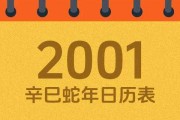本文目录导读:

On January 3, 2019, the world witnessed a moment that was not only a turning point in history but also a testament to the significance of auspicious timing. This day, known as the "auspicious timing" or "吉时" in Chinese culture, holds deep historical and cultural significance. In this article, we will explore the historical context, cultural importance, and modern relevance of this day.
Historical Context
In 2019, January 3 marked the beginning of the 68th year of the reign of the Qing Dynasty's Emperor Guangxu (Gaoxu). The Qing Dynasty, established in 1636, was one of the longest-reigning dynasties in Chinese history. During this period, political stability, economic growth, and cultural prosperity were the norm. The Qing Emperors were known for their wisdom and strategic decision-making, which often hinged on the timing of their actions.
On this particular day, the Qing Court was holding a major decision-making session. The Emperor and his council were discussing the nation's future strategy, taking into account the current political climate and the timing of their actions. The choice of the date, January 3, 2019, was not arbitrary. It was chosen based on the "auspicious timing" of the zodiac, which was believed to influence the success of the decisions made.
Cultural Importance
In Chinese culture, the concept of "auspicious timing" is deeply rooted. The zodiac, which divides the year into 12 signs, plays a significant role in determining the "auspiciousness" of a date. Each zodiac sign is associated with specific characteristics and energies, and the choice of a date is often influenced by the zodiac sign of the year. For example, the year 2019 was the Year of the Pig, which is associated with resilience and wisdom.
The practice of selecting auspicious dates for important events dates back thousands of years. From the construction of palaces to the celebration of birthdays, the timing of events was carefully considered. In Chinese culture, an auspicious date was believed to bring good fortune and success to those involved. This belief in the power of timing has influenced decision-making across various aspects of life, from politics to personal choices.
Modern Relevance
In modern times, the concept of auspicious timing has evolved but remains relevant. In today's fast-paced world, where decisions often have far-reaching consequences, the importance of timing is more evident than ever. Whether it's choosing the right time to launch a business, start a project, or even propose marriage, the timing of the decision can make or break the outcome.
In China, the practice of selecting auspicious dates for important events continues to be popular, especially among the younger generation. People today are more aware of the significance of timing and are willing to go to great lengths to ensure that their decisions are made on an auspicious day. This reflects a blend of tradition and modernity in Chinese culture.
Conclusion
January 3, 2019, is a day that reminds us of the deep historical and cultural significance of auspicious timing. It is a day that was chosen not arbitrarily but based on the wisdom of the times and the belief in the power of timing. From the Qing Dynasty's strategic decisions to the cultural practices of selecting auspicious dates, this day serves as a reminder of the enduring importance of timing in our lives.
In today's world, where decisions are often made under pressure, the concept of auspicious timing offers a valuable lesson. It reminds us that the timing of our actions can have a profound impact on the outcome, and that careful consideration and planning are essential for success. Whether in politics, business, or personal life, the practice of selecting auspicious dates serves as a reminder of the power of timing and the importance of making decisions at the right moment.
相关阅读:
标签: #吉时








